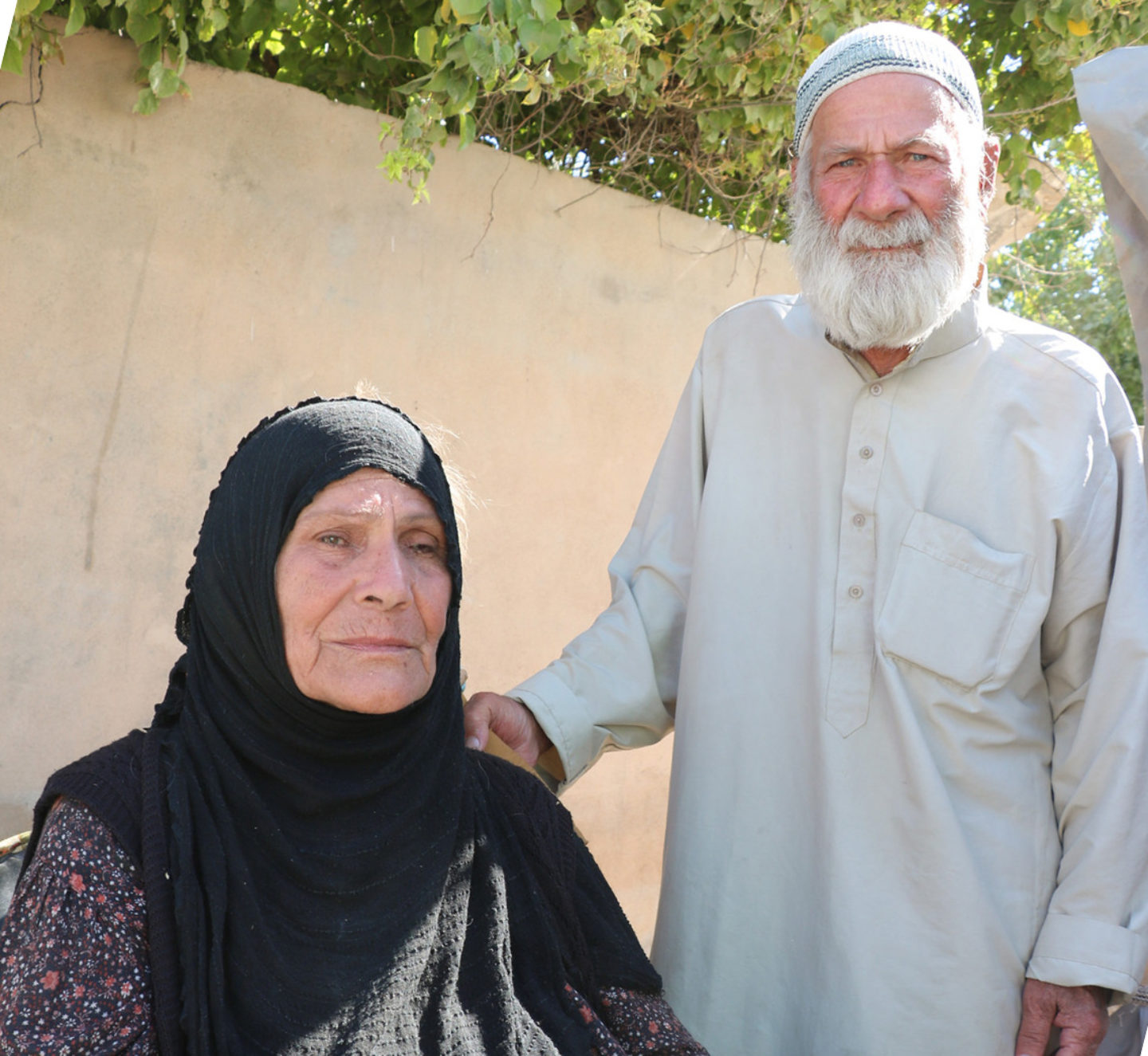Stories from Iraq
How emergencies affect older people: Waded’s story
Waded, 79, is a retired teacher. He’s passionate about the power of education in children’s lives. He is well travelled, having spent significant time in Europe where his three children work as doctors and engineers. He met his wife in primary school and they’ve been sweethearts ever since.
Waded also happens to be one of the nearly 2 million people displaced from their homes in Iraq as a result of years of conflict.
A difficult journey
When fighting erupted in his town, Hawiga, Waded and his wife, Sameera, felt no other option but to leave in search of a safe place. They walked for hours to arrive at a temporary site set up to welcome the droves of people fleeing Hawiga.
The long journey on foot was difficult for Waded at his age, but even harder for Sameera. She already had difficulty walking at her age due to intense swelling in her legs, so the journey left her exhausted and in pain. A couple of men offered to help carry Sameera for part of the journey when she struggled to keep going. But even with their help, the journey took its toll.
Too often forgotten
Among the most forgotten during emergencies are the elderly. Their needs are unique and often require more tailored responses than the typical action humanitarian responders can provide.
Many older people battle chronic health issues that require regular access to medication and treatment. Others are managing disabilities in a new, vulnerable setting. Sadly, some elderly family members are separated from their loved ones during natural disasters or when forced to flee their homes because of conflict.
With the seconds ticking by and lives on the line, first responders must focus on providing large-scale emergency relief to as many people as possible in order to save the maximum number of lives. Unfortunately, this means that more specific needs can go unmet.
Our teams know this and strive to meet these “unseen” needs wherever and however possible — because we believe that each life is valuable, no matter how hard or difficult to reach.
Working together to bring relief
 Waded with his wife Sameera, both 79 years old.
Waded with his wife Sameera, both 79 years old.
When Medair came into contact with Waded and Sameera and saw that Sameera needed extra support, the team connected her with the organisation Handicap International, who works specifically with disabled and vulnerable people in situations of poverty and exclusion, conflict and disaster. They provided Sameera with a new walker, which helped her to get around more comfortably.
Waded and Sameera left a strong impression on the Medair team in Iraq because of their undeniable love for one another. During their time at the temporary site, the couple were never far apart.
“My wife is my soul,” Waded told us. “I fell in love with her in primary school and I love her to this day. I never want to be without her.”
Iraq has accepted more than 250,000 Syrian refugees while also experiencing its own crisis, with conflict leading to mass internal displacement. At the end of 2017, Iraq had the fourth highest number of IDPs in the world. If you’d like to support more families like Waded and Sameera, please make a gift of any amount today. Or become a monthly donor to provide ongoing support to refugees and internally displaced people caught in the crossfire through the provision of shelter, hygiene and household supplies, and health services.
In Iraq, Medair provides vulnerable people with shelter, health care, psychosocial support, safe drinking water, latrines, and hygiene. Medair’s work in Iraq is supported by EU Civil Protection and Humanitarian Aid, United States Agency for International Development (USAID), and generous private donors.
This content was produced with resources gathered by Medair field and headquarter staff. The views expressed herein are those solely of Medair and should not be taken, in any way, to reflect the official opinion of any other organisation.”
